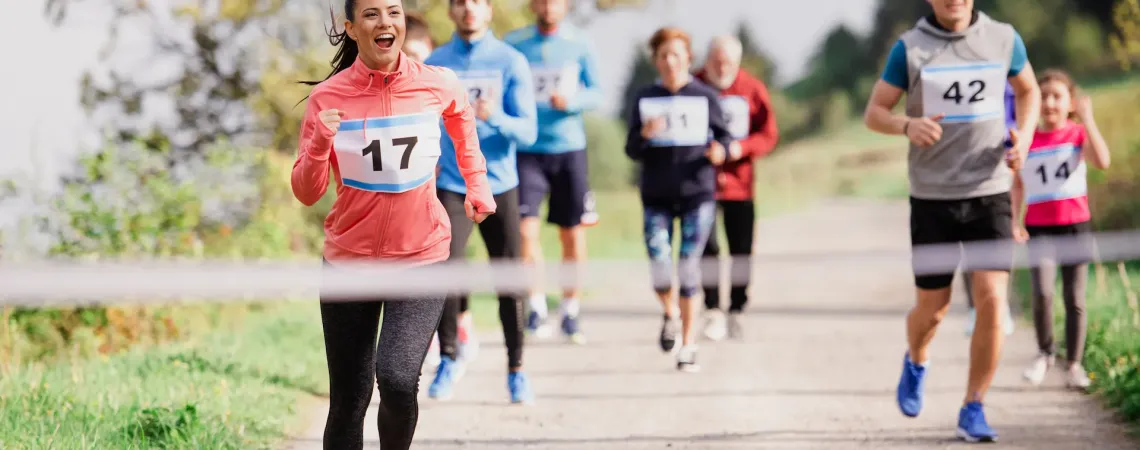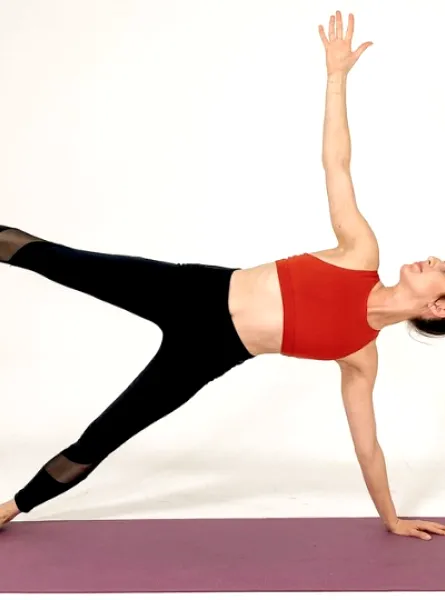
In this article:
-
Iron deficiency vs. iron-deficiency anemia: how to tell the difference?
-
Iron deficiency: when should you see a dietitian nutritionist?
Persistent fatigue, unusual shortness of breath, decreased endurance? Iron could be the cause. For athletes, an iron deficiency can undermine performance without warning.
This issue is particularly common among women and young athletes, where up to 50% show reduced iron stores. And the most concerning part? You can be deficient without realizing it… until fatigue, decreased performance, or injuries start piling up.
Fortunately, our sports dietitians are here to help you understand this phenomenon and guide you toward concrete strategies to regain energy, endurance, and progress.
1. What are the symptoms of iron deficiency in athletes?
Signs are not always obvious at first, but over time, some symptoms may set in and directly impact performance:
- Constant fatigue, even after rest
- Quick shortness of breath during effort
- Reduced endurance and exercise tolerance
- Slower recovery
- Pale skin, cold hands or lips
- Difficulty concentrating or lack of motivation
- Irritability, mood swings
- Increased frequency of injuries or infections
2. Why is iron so crucial for an athlete?
Iron is essential for the proper functioning of the body, especially when you are active. It directly affects your energy, endurance, and even your recovery capacity.
The role of iron in the body:
- Oxygen transport: essential so that muscles receive the oxygen they need during effort.
- Energy production: helps cells produce the fuel you need to move.
- Immune defense: strengthens resistance to infections, especially during physical stress.
- Cognitive function: plays a role in concentration, mood, and motivation.
3. What is the link between iron and endurance?
Iron is indispensable for transporting oxygen to the muscles. When stores drop, the body gets tired more quickly, recovery slows, and performance decreases.
And it’s not only in cases of anemia: you can have an iron deficiency without anemia. In this case, hemoglobin remains normal, but stores (ferritin) are already low. Since it doesn’t always show up on standard tests, only a ferritin blood test can detect it.
4. Iron deficiency vs. iron-deficiency anemia: how to tell the difference?
- Iron deficiency: iron stores (ferritin levels) are low, but hemoglobin is still normal. Red blood cells are produced, but with less raw material. Result: fatigue, slower recovery, reduced endurance.
- Iron-deficiency anemia: advanced stage of deficiency. Hemoglobin drops, red blood cells become smaller and paler, and oxygen transport capacity decreases significantly. Symptoms are then more intense: pronounced shortness of breath, paleness, palpitations.
Simply put, you can have an iron deficiency without anemia, but it can already hinder your performance. A complete blood test, including ferritin, is essential to tell the difference. Only follow-up with healthcare professionals can confirm the diagnosis and provide adapted solutions.
5. What are the iron requirements?
Official recommendations for the general population are:
For athletes, needs are higher due to training-related losses. It is estimated that:
- Male athletes: about 17.5 mg/day.
- Female athletes with regular menstrual cycles: up to 23 mg/day depending on the case.
During pregnancy, breastfeeding, or if you are a vegetarian/vegan athlete, your needs may be even higher. In these situations, get proper follow-up with a nutritionist to adapt your diet and prevent deficiencies.
6. Why do athletes lack iron? Main causes
Iron deficiency is not only explained by what we eat. Several health issues or digestive disorders can reduce absorption, as well as certain blood losses linked to menstruation or pregnancy.
What can lower your iron stores
- Blood loss: heavy periods, gastrointestinal micro-bleeding, regular use of anti-inflammatories.
- Sweating: iron losses through sweat accumulate with training intensity.
- Repeated impacts: as in runners, the foot strike can break red blood cells.
- Increased hepcidin: this hormone, produced after exercise, temporarily blocks iron absorption.
- Pregnancy and breastfeeding: these periods greatly increase iron requirements, even in well-nourished athletes.
7. Nutrition to fuel your energy
Even though several factors of iron loss are inevitable, nutrition remains a powerful tool to support good stores and prevent deficiency. Choosing foods wisely, combining them strategically, and adapting meals to your lifestyle can make a real difference.
That said, in some situations, diet alone may not be enough:
- Heavy periods
- Pregnancy
- Breastfeeding
- Intense sports practice
- Vegetarian or vegan diet
In these cases, medical follow-up and sometimes supplementation are necessary. Guidance from one of our Registered Dietitian Nutritionists can make all the difference in optimizing nutrition and determining if supplements are appropriate.
8. Heme iron vs. non-heme iron: what’s the difference?
There are two forms of iron in food, and the body absorbs them differently:
Key takeaway: plant-based iron is less well absorbed than animal iron, but it can be optimized with a few simple strategies.
9. How to improve iron absorption: 4 easy tips
Combine vitamin C-rich foods with your iron sources at meals
Vitamin C helps your body better absorb plant-based iron.
Try our Philly cheesesteak-style skillet, a recipe that combines protein and vitamin C-rich vegetables to optimize iron absorption.
Combine animal and plant proteins in the same meal
Animal iron (meat, fish, seafood) also enhances the absorption of plant-based iron.
Try our super-easy turkey chili, which combines meat and legumes for a rich and perfectly balanced iron meal.
Drink your coffee, tea, or hot chocolate outside of meals
The tannins in these drinks reduce iron absorption.
Tip: wait at least 1 hour after meals before drinking them.
Avoid consuming calcium-rich foods and iron-rich foods in the same meal
Calcium can reduce iron absorption when consumed at the same time.
Examples: milk, cheese, yogurt, calcium-fortified drinks, calcium supplements.
Tip: have them as a snack or at least 1–2 hours before or after your main meal.
10. Iron deficiency: when should you see a dietitian nutritionist?
Do you often feel tired for no reason? Are you hitting a plateau in your training? Do you follow a vegetarian diet or do a lot of cardio? It may be time to check your iron status.
A follow-up with a sports nutritionist can help you:
- Adjust your diet to your real needs
- Maximize iron absorption with simple strategies
- Prevent future deficiencies, without necessarily having to take supplements
Boost your energy and performance with tailored nutrition!
A sports nutritionist can help you regain your energy, improve recovery, and prevent injuries related to iron deficiency.
Book an appointment with a dietitian nutritionist today to improve your endurance, support your recovery, and reach your full potential.





